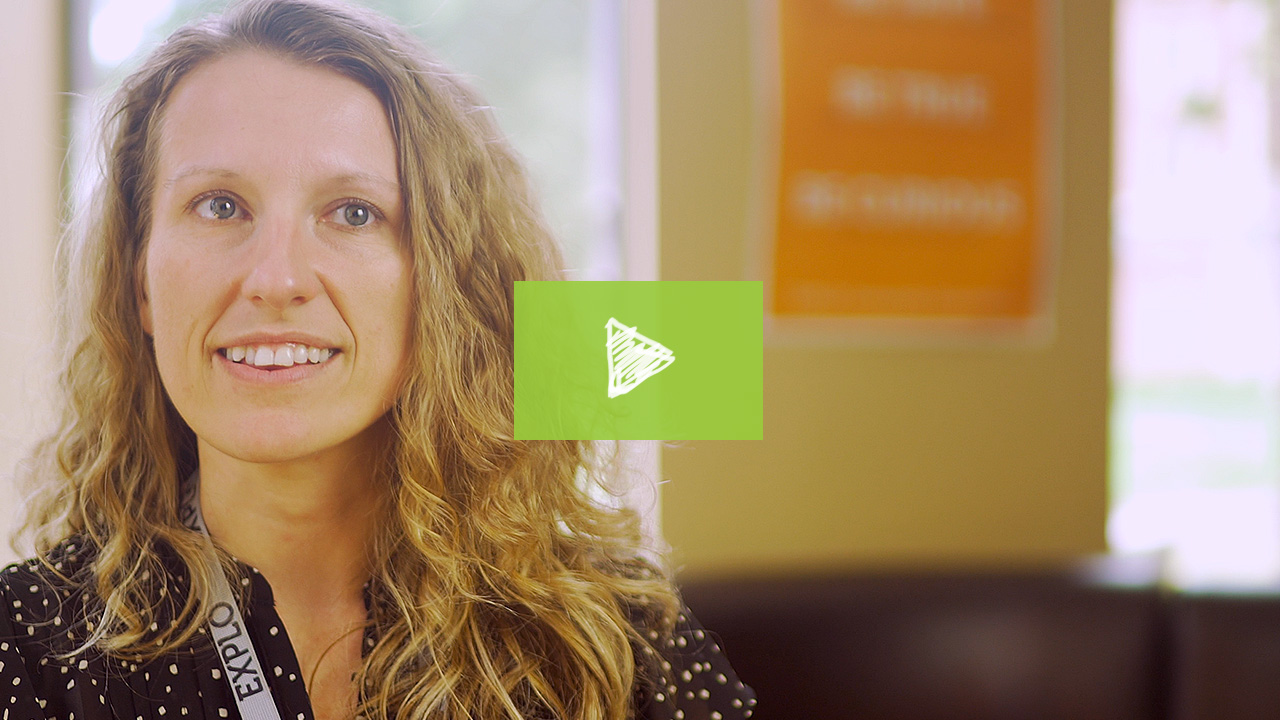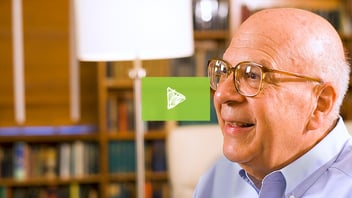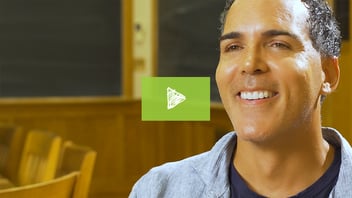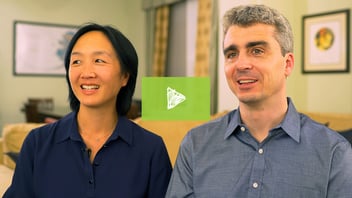Weekly Edventure #6: Show, Don't Tell

We all have experienced some version of the classic assignment of “Show-and-Tell” — hefting in family heirlooms, jars full of bugs, Pokémon cards, and prized stuffed animals onto our kindergarten desks. We’d “oooh” and “ahhh” over our neighbors' things, using our senses to learn more about each new piece, salivating over the stories that they might hold. The teacher would stand in front of the room and say something along the lines of “Alright class. Can someone tell us about their object?”
The tendency is you just want to tell people what they need to know. So, when it comes to teaching, there’s a temptation to just deliver the lesson and say “Ok, here’s the moral.” But really, you need to create an experience of a journey for students… show, don’t tell.
Katie Liesener — professional storyteller, freelance journalist, and EXPLO Professor-of-Practice — suggests that the “telling” in show-and-tell might actually be hindering our ability to effectively learn.
"Show, don’t tell" is a technique most often used by writers that, through text, allows the reader to experience stories through action, thoughts, senses, and feelings rather than through the author’s exposition. Liesener suggests that the process of describing a scene in a way that the reader can draw his or her own conclusions enhances students’ critical thinking skills, increases creative literacy, and can stimulate a lifelong commitment to understanding the nuanced and diverse world around them.

ABOUT SHOW, DON'T TELL
At EXPLO, we encourage the pursuit of lifelong learning — which means we are constantly doing our own studying up, reading on, or relearning the concepts that we teach throughout the summer. Here are some really interesting (and some just really really fun) links that we've been recently reading on the science of thriving.
-
The first instance of "show, don't tell" in literature: "Don't tell me the moon is shining; show me the glint of light on broken glass." Anton Checkov really knew his stuff.
-
The Twitter account, "Thoughts of Dog" is all about the moments where we wished our dogs could just tell us what they were thinking
-
The Smithsonian National Museum of Natural History's thousands of 360 degree images allow you to meander throughout this amazing museum from the comfort of your computer
- Introducing the TED Commandments: 10 unbreakable rules for speakers who happen to find themselves on a TED Talk stage
-
Is a picture worth a thousand words? This Google-generated “heat map” shows the most photographed locations on Earth.
- The Pencil and the Keyboard: Ultimate creative, Clive Thompson, on how the way you write changes the way you think
- "Ten Meter Tower," a very short documentary by the New York Times, is one of our favorite reminders that courage often comes in the form of "show", not "tell"
- A card game where the images shape the story you tell. Bonus: it's incredibly easy to learn.
- Argentine artist Mirtha Dermisache on invented graphic languages — a poetic reminder that language itself is an invention, a net woven of abstraction in which we try to hold reality
RELEVANT EXPERIENCES
At EXPLO, showing without telling takes many shapes, forms, exercises, and events. Just a few EXPLO experiences that encourage students to explore storytelling include:
- Course: In Commercial Marketing and Illustration, learn the in's and out's of how to make a profit from visual storytelling (grades 8+9, 10-12)
- Workshop: From frogs to cow eyes, and pig hearts to sheep brains, Dissection will give you a first-hand experience in learning more about the anatomy of the species that surround us — including our own (grades 4-7, 8+9, 10-12)
- Course: The only way to understand the workings of a courtroom — and seek out the truth — is to stand in the shoes of a participant in a court case. Defend in the name of justice in Mock Trial! (grades 4-7, 8+9, 10-12)
- Main Event: When world record holder and internationally-acclaimed Pogo Stick Jumper, Pogo Fred, tells you that you can choose to follow any path in life that motivates you, it feels pretty powerful. But watching him jump 30 feet in the air is just as cool. (grades 4-7)
- Course: Join us in our playwriting circle in Writing for Stage + Screen, where you’ll learn the nuances of writing a compelling story — from Hollywood screens to Broadway stages (grades 10-12)
- Course: There's no better way to learn about the year 1246 than traveling back in time and actually living in it. Create a thirteenth century kingdom with your peers in Building A Medieval Empire (grades 4-7)
- Trips: A large reason why we offer over 40 trips each weekend for Exploration students to curate their own summer experience is because we believe there's no better way to learn about the world than to actually be a part of it. Take a glimpse at all of the trips we have to offer at EXPLO at Yale, EXPLO at Wellesley, and EXPLO at Wheaton.
Interested in learning more about summer camps? We've recently written a number of online guides. So whether you want to know how to find a great summer camp, how to find a transformational summer camp, want to know the secret sauce of the best summer camps, or simply want a listing of some of the best summer camps around, we have a guide for you.



